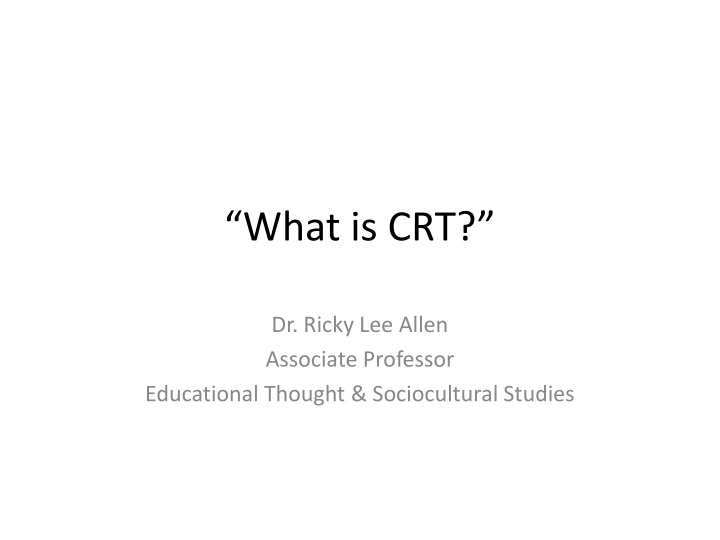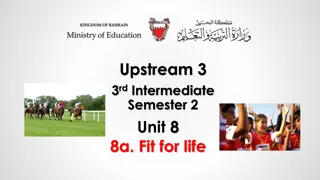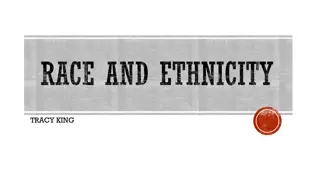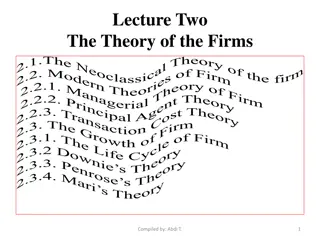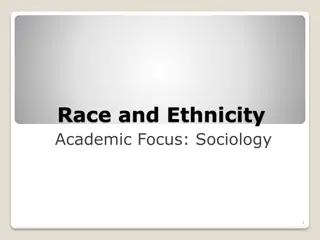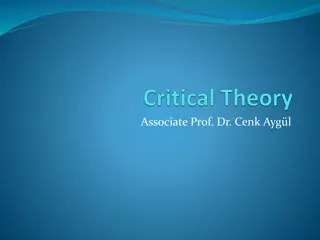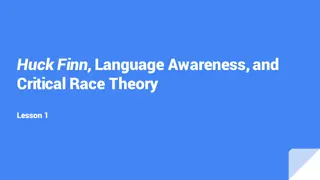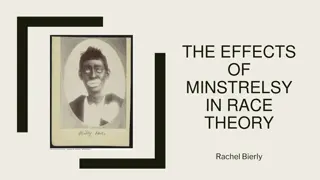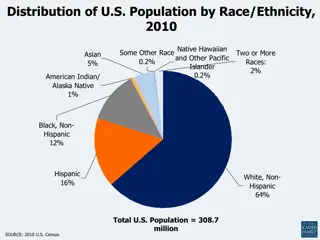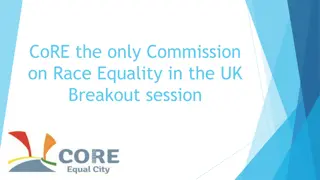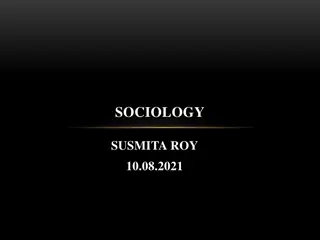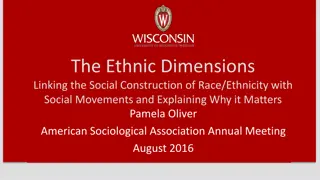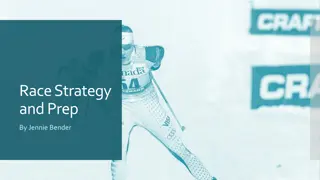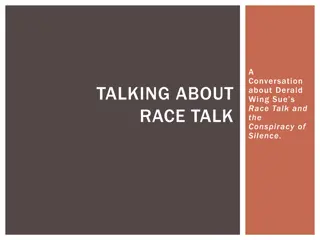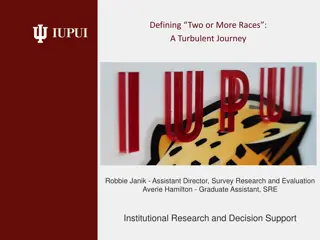Insights into Critical Race Theory
Critical Race Theory (CRT) challenges dominant ideologies, emphasizing the centrality of race, racism, and social justice. It critiques liberal and leftist/marxist race theories, examining white supremacy and whiteness as property. The theory underscores structural hierarchy, systemic constraints, and racial phenomena within society. CRT reframes racial progress and idealism, advocating for a more nuanced understanding of racial dynamics in modern contexts.
Uploaded on Mar 07, 2025 | 2 Views
Download Presentation

Please find below an Image/Link to download the presentation.
The content on the website is provided AS IS for your information and personal use only. It may not be sold, licensed, or shared on other websites without obtaining consent from the author.If you encounter any issues during the download, it is possible that the publisher has removed the file from their server.
You are allowed to download the files provided on this website for personal or commercial use, subject to the condition that they are used lawfully. All files are the property of their respective owners.
The content on the website is provided AS IS for your information and personal use only. It may not be sold, licensed, or shared on other websites without obtaining consent from the author.
E N D
Presentation Transcript
What is CRT? Dr. Ricky Lee Allen Associate Professor Educational Thought & Sociocultural Studies
2018 Critical Race Studies in Education Association Conference Held at UNM May 30-June 1 Proposals are due January 15 www.crsea.org
CRT Tenets Centrality of race & racism Challenge to dominant ideology (e.g., objectivity, neutrality, colorblindness, meritocracy, etc.) Commitment to social justice Centrality of the experience knowledge of people of color Interdisciplinary Intersectional
CRT is a Critique of Liberal Race Theory: a fundamentally good society steadily moving towards racial progress , focus on access and opportunity & legal remedies CRT argues that society is formed hierarchically through ongoing racial conflict, even in so-called racial solutions
CRT is a critique of Leftist/Marxist Race Theory: race is nothing but false ideology & capitalism is the ultimate context for all racial phenomena CRT argues that race is socially and politically constructed, and thus, real & white supremacy, as a social structure, is main context for racial phenomena
White Supremacy It is structural The structure is the racial hierarchy It organizes people into races assigned to notions of differential meaning & value Institutions function to reproduce the racial hierarchy, but are not the structure itself Structural white supremacy is determining and somewhat predictable
Whiteness as Property Legal system is set up to protect whiteness as a form of property (alienable right) Membership to whiteness is systematically controlled Citizenship, enslavement, land rights, studenthood, victim status, voice, etc.
Racial Idealism The liberal notion that racial progress happens through a moral/ethical shift in the consciousness of the dominant group (i.e., whites) Civil Rights laws are largely based on racial idealism Education (e.g., multiculturalism) is often seen as the remedy to consciousness raising.
Racial Realism The belief in CRT that structural white supremacy is objectively real Whites are not na ve, benign, or ignorant oppressors, but rather are pursuing the interests of their group (racial identity politics) Laws & policies based on racial idealism predictably fail because whites commit to their own interests rather than the interests of racial Others
Interest Convergence Principle Whites respond to the social justice demands of people of color only when it is in the interests of whites to do so (e.g., Brown decision) The corollary is also true Attempts to use ICP positively are usually liberal cooptations of the idea
Progress-Regress Cycle Since whites always pursue their interests, the pressures that cause progress always devolve into regress when those pressures go away Jim Crow & the New Jim Crow
CRT is a Critique of Ethnicity theory: the notion that racism is due primarily to cultural tensions around assimilation Boas vs. Du Bois mutable vs. immutable
Counterstorytelling Experiences with, and knowledge of, white supremacy conveyed through stories, parables, auto/biographies, wisdom, etc. Challenges the ideologies that sustain white supremacy Issue of hegemony not all stories are counterstories
Emerging Area: Emotionality White supremacy constructs racialized rules of feeling White interests/ideologies have emotional motivations Pain, trauma, violence of white supremacy Distortion of love
Key Books Derrick Bell, Faces at the Bottom of the Well Ian Haney-Lopez, White by Law Richard Delgado & Jean Stefancic, Introduction to Critical Race Theory Michelle Alexander, The New Jim Crow Edward Taylor, et al, Foundations of Critical Race Theory in Education Charles Mills, The Racial Contract Kimberle Crenshaw, Critical Race Theory: The Key Writings That Formed the Movement
